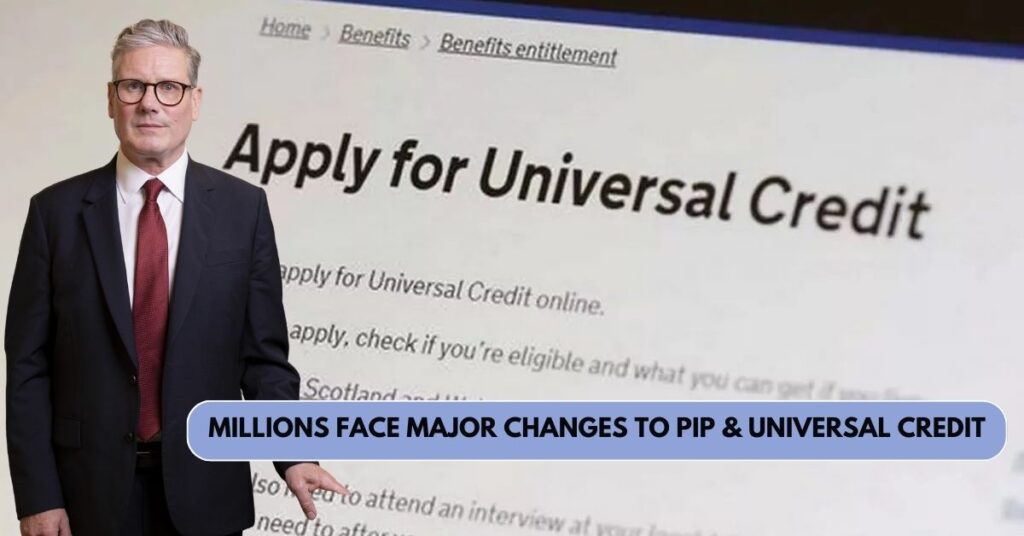The UK government has unveiled a series of welfare reforms aimed at cutting benefit spending and tightening eligibility criteria for disability-related support.
The changes primarily impact Personal Independence Payments (PIP) and Universal Credit (UC), with the government citing financial sustainability and workforce reintegration as key priorities.
The Department for Work and Pensions (DWP) estimates that these reforms will save £5 billion annually by the end of the decade. However, disability advocacy groups have raised concerns about the potential impact on vulnerable claimants. Here’s a breakdown of the key changes and what they mean for those receiving benefits.
Stricter PIP Eligibility Criteria

Under the new reforms, the government will tighten the eligibility requirements for PIP, which provides financial assistance to individuals with long-term physical or mental health conditions.
- Higher Points Threshold: To qualify for the daily living component of PIP, claimants will now need to score at least four points in a daily living activity category. (Gov.uk)
- Impact on Claimants: This means fewer individuals may qualify for support, potentially affecting hundreds of thousands of current recipients.
- Implementation Timeline: The changes will apply to new claims first, followed by reassessments of existing recipients.
Universal Credit (UC) Health Element Reductions
In a bid to curb welfare spending, the government is set to reduce the health-related component of Universal Credit. The key changes include:
- Lower Support Payments: Starting from 2026/27, the weekly health top-up will be cut from £97 to £50 for new claimants. (The Times)
- Exclusion for Younger Claimants: Individuals under 22 will no longer be eligible for incapacity top-ups, encouraging them to seek employment.
This move is expected to push more people into the workforce but may create financial strain for those unable to work due to health conditions.
Abolition of Work Capability Assessments (WCA)
The Work Capability Assessment (WCA), which determines eligibility for incapacity-related benefits, is set to be scrapped by 2028. Instead, PIP assessments will be merged with Universal Credit to streamline the process. (The Guardian)
- Why This Matters: Currently, individuals undergo separate assessments for PIP and UC. Merging them could make the process more efficient but may also lead to stricter qualification criteria.
- Potential Consequences: Advocacy groups worry that this change could result in many losing access to vital support.
‘Right to Try’ Legislation
The government will introduce a new policy allowing benefit claimants to attempt a return to work without immediately losing their benefits. This aims to encourage employment among those with health conditions while providing a financial safety net during their transition. (AP News)
Projected Impact on Claimants
Estimates suggest that up to 1.2 million people could lose between £4,200 and £6,300 annually due to the revised PIP eligibility criteria. Many disability advocacy groups have voiced concerns that these cuts will disproportionately impact those most in need. (Financial Times)
Government Justification & Response
The government argues that these reforms are necessary to balance the welfare budget and ensure financial sustainability. A spokesperson for the DWP stated:
“Our priority is to create a welfare system that supports those who truly need it while incentivizing work for those who are able.” (Gov.uk)
However, critics argue that the changes will push more disabled individuals into poverty, as many rely on these benefits for daily living expenses and medical support.

What’s Next?
The proposed changes are set to be debated in Parliament, with implementation beginning as early as 2026. Claimants are encouraged to check their eligibility and prepare for potential adjustments to their benefits.
For the latest updates, visit the official DWP website and stay informed on potential appeals and support services available.
With these significant reforms on the horizon, it remains to be seen how they will impact millions of people relying on PIP and Universal Credit. While the government insists these changes are necessary for economic stability, opposition voices argue they could create undue hardship for vulnerable populations.
The coming months will be crucial as discussions unfold, shaping the future of the UK’s welfare system.
This article has been carefully fact-checked by our editorial team to ensure accuracy and eliminate any misleading information. We are committed to maintaining the highest standards of integrity in our content.


